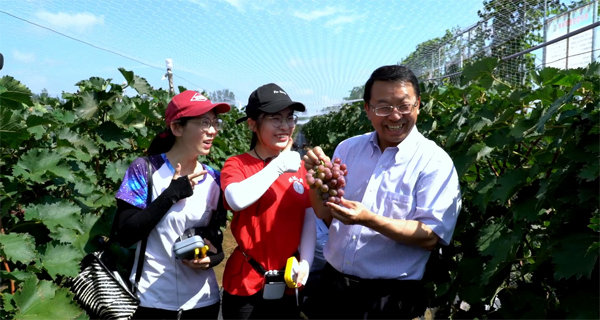Documentary shows fieldwork of three generations in Hebei


A group of young people labored in the countryside in Quzhou county, North China's Hebei province, planting grapes. But when they recorded data about their growth, they were soon disappointed when they found some of the grapes were affected by a downy mildew, before they enjoyed the final harvest of the remaining fruit.
The young people are students from the China Agricultural University, and they are not the only generation from the educational institution to have slugged it out in this area.
A TV documentary, University on the Field, premiered in Beijing on Sept 20, and it tells the story of three generations at the university who strived to promote agricultural development in Quzhou.
According to Shi Yuanchun, an academician at the Chinese Academy of Sciences, who was one of the first members of the institution to have worked in the fields of Quzhou: "It is a long but exciting story."
The documentary's story starts in 1973 when Shi, Xin Dehui and some other teachers at CAU were appointed to make use of a patch of wasteland in Zhangzhuang village in Quzhou.
They lived in poor conditions but made great progress in their work after repeated trials. Their experience in improving the quality of saline and alkaline soil was later extended to the entire county, and then on a larger scale across China. Shi and Xin won the first prize of the National Science and Technology Progress Awards for their contributions.
When the soil was ready, the second generation led by Zhang Fusuo and other teachers from CAU went to Quzhou to "pursue high yield, high efficiency and sustainable development". They did test trials to explore new technology for planting crops, and what they developed was later used on other farmlands in China.
The third generation, represented by Wang Xiaoyi and Yang Yanling who were required to work in a testing facility known as the "scientific and technology courtyard" in Quzhou for two years, are still writing their own stories about Quzhou.
At the premiere, Shi, now 88, recalled the work he and his colleagues undertook there, which started 46 years ago. Shi said he and his wife, Li Yunzhu, went to Quzhou at that time and stayed there for at least eight months every year. They had to leave their two children at home in Beijing to be cared for by neighbors.
He has mixed feelings about his work decades ago.





































